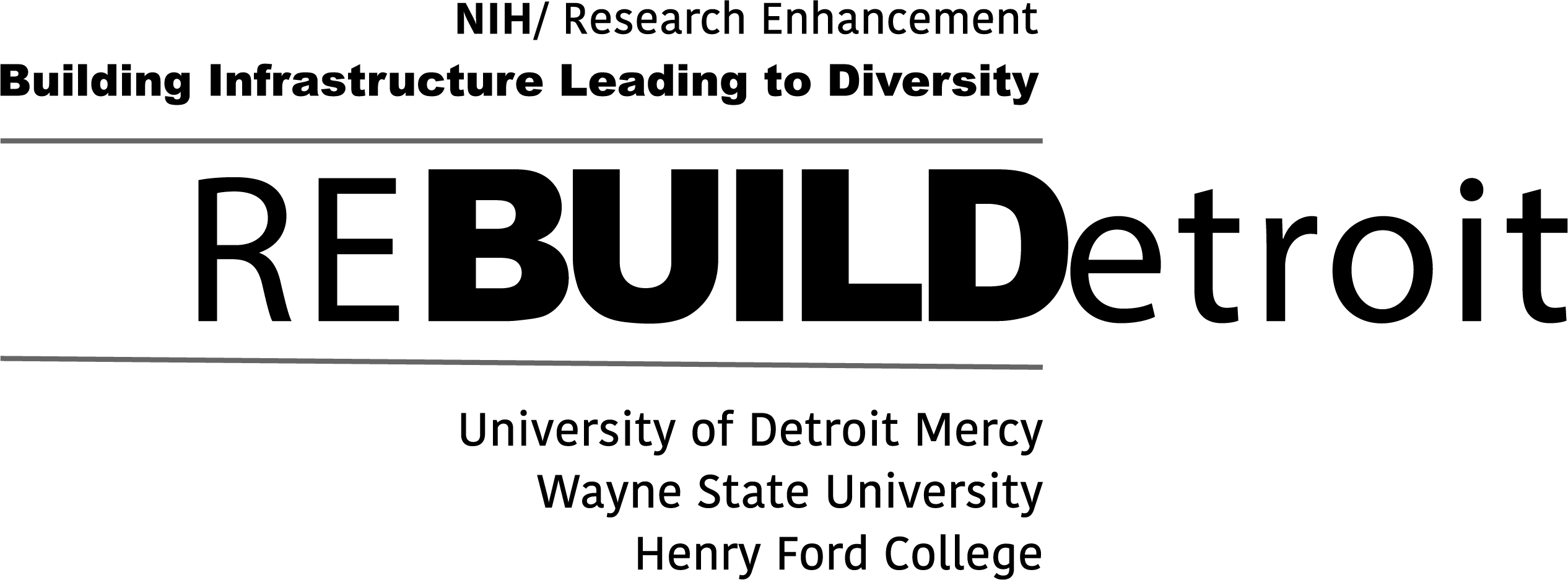ReBUILDetroit funded five pilot, collaborative and course development projects submitted by investigators across partner institutions as part of a competitive granting process this month. Pilot awards totaled nearly $125,000, and are part of the five-year, $21MM ReBUILDetroit grant funded by the National Institutes of Health (NIH).
A team comprised of faculty and administrators from University of Detroit Mercy, Wayne State University and Marygrove College developed and disseminated the Request for Proposals in Fall 2016. Investigators from all three partner institutions were eligible to submit. The team solicited external reviewers who provided detailed feedback to investigators. Based on reviewer comments, recommended proposals were sent to the NIH for final review and approval. The following grants have been approved by the NIH:
Course Development Grants
- Kendra Evans, Elizabeth Roberts-Kirchhoff, and Katherine Lanigan. “Development and Implementation of Bioanalytical Research Project in Quantitative Analysis Laboratory.” $24,990.62
- Gregory Grabowski and Rachelle Belanger, “Advancing Undergraduate STEM Education: Development of a Research-Focused Histotechnology Course.” $25,878.44
Collaborative and Pilot Grants
- Klaus Friedrich and Christine Chow, “Amino Acid-Type Carrier Ligands for DNA-Probing.” $23,117.00
- Carla Groh and Mitzi Saunders, “Transition from Spousal Caregiving to Widowhood: A Mixed Method Comparison between Rural and Urban Women.” $24,998.00
- Jacob Kagey and Tiffany Cook, “Investigation of the multi-faceted role of Yorkie in Drosophila melanogaster eye development in the roles of cell proliferation, cell survival, and cell fate specification.” $25,418.71
The long-term objective of the ReBUILDetroit project (Research Enrichment Building Undergraduate Infrastructure Leading to Diversity) is to align institutions and faculty from University of Detroit Mercy, Marygrove College and Wayne State University to support the development of innovative undergraduate research training programs that eventually will increase the number of undergraduate and underrepresented students pursuing biomedical, behavioral, social, and clinical research careers. The grant is currently in its third year.

